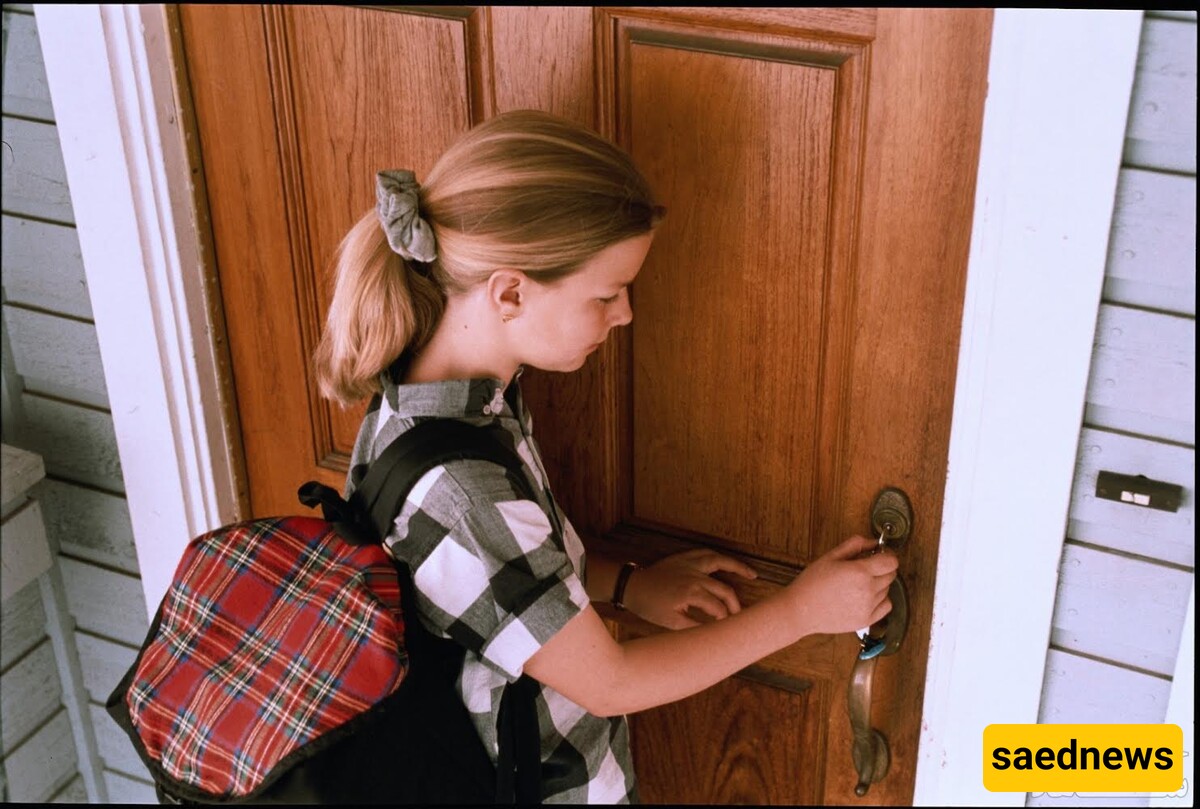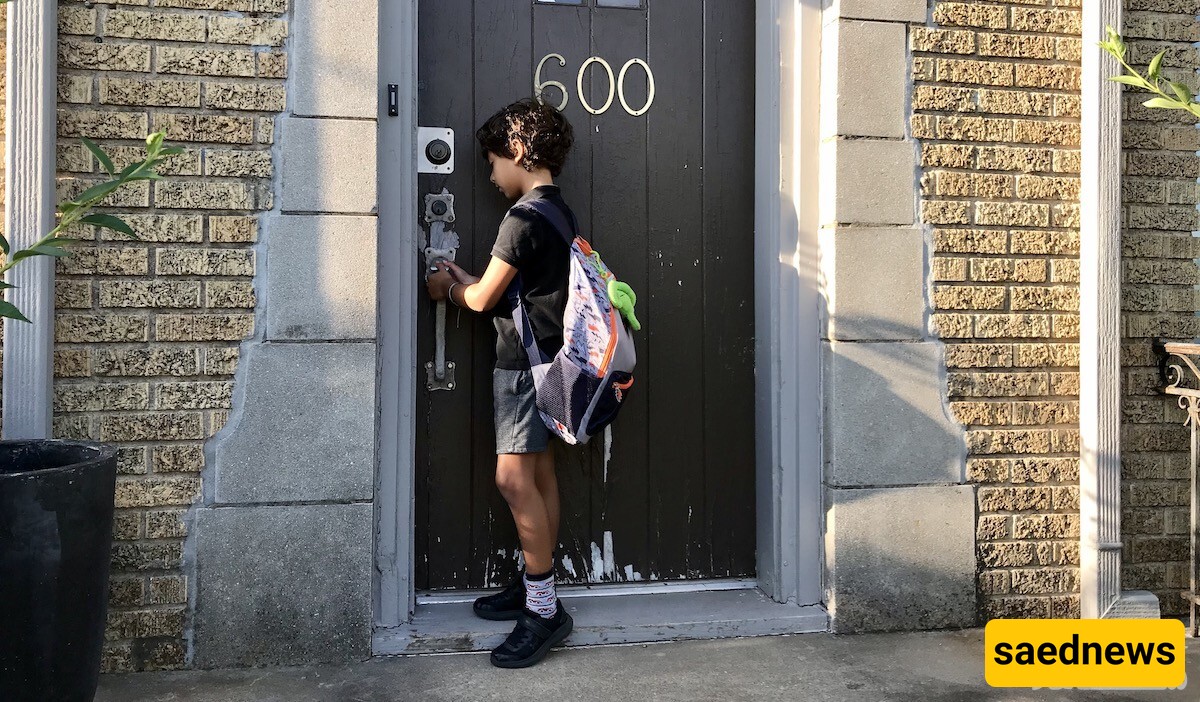Latchkey children are the result of parents who are either employed, not sufficiently developed to take on the serious responsibilities of parenting, or families where parents are preoccupied with their own issues. Join us as we explore this topic regarding children.

The term "latchkey children" refers to kids who, due to the absence of their parents at home, spend hours alone and are responsible for taking care of themselves. The reality is that cultural and social changes in the modern era have led many parents to work simultaneously, which means a large number of children are left alone at home for certain hours of the day without parental supervision.
The duration of time a child spends alone at home varies, and the exact number of children in this situation is unknown. However, estimates suggest that 1.6 million children—about 7.6% of all children aged 5 to 14—are left alone at home for a few hours after school.

Research has shown that latchkey children differ from those whose parents are waiting for them at home after school in terms of social development, including reputation, adaptability, and competence. Some studies indicate that these children are more likely to experience behavioral issues and academic setbacks.
Knowing that they have an hour or two before their parents return home might tempt children to spend extra time on the streets with friends after school. Such children are more likely to associate with delinquent peers, which can be harmful.
To fill their alone time, these children and teenagers often turn to television and computer games. While television can play a significant role in shaping values and behaviors, unfortunately, many TV programs promote violence. Watching violent TV programs leads to aggression in children. Even a single exposure to a violent show can increase aggressive tendencies. The effects of TV violence may manifest immediately or years later. Though TV violence is not the sole cause of aggressive behavior, it is a significant contributing factor.
Video games also play a role in shaping negative behaviors. In these games, children often see themselves as heroes who achieve victory through crime and violence. Studies on children and teenagers have shown that violent video games increase aggression.
While staying home alone can develop a child’s independence and teach them self-care, research suggests that children in such situations often spend time on passive, solitary activities such as watching TV, playing video games, and snacking, rather than participating in social gatherings, physical activities, or family interactions. This can lead to weaker social skills compared to their peers. These children may become shy, withdrawn, or accustomed to solitude, which can later cause difficulties in forming relationships with others.
Given the challenges discussed, it is crucial for parents to monitor their child's return from school and ensure they go home immediately, even if the parents are at work. Recent studies highlight the importance of parents knowing their child's whereabouts and maintaining constant communication.
Parents should establish clear and firm rules regarding when their child can leave and enter the house, enforcing these rules with consistency. A lack of proper parental supervision in such cases can pose risks for children.
Regularly calling and checking on the child in a thoughtful manner helps establish good habits. It’s important for parents to communicate with their teenagers subtly, so they do not feel distrusted or incapable. For instance, parents can call their child right after school ends, assuming they have arrived home, and say something like, “I just wanted to check in and hear your voice—I missed you.”
Apart from supervising a child's return from school or extracurricular activities, parents must ensure their child—especially younger ones—is mature and capable enough to stay home alone.
This ability requires some training, including:
Learning how to take care of themselves or younger siblings.
Proper use of household appliances like electric devices and gas stoves.
Understanding how to use television, the internet, and other media safely.
Additionally, children should be given emergency contact numbers, including:
Parents’ mobile and workplace numbers.
Family members' contact numbers.
Emergency services and police numbers.
Teaching children how to speak on the phone and respond at the door is another critical skill. Parents should instruct them on which calls to answer and how to avoid revealing that they are home alone. For instance, instead of saying, "I’m alone," a child can say, "My parents are busy right now, but they’ll call you back later." They should also avoid answering the door and, if necessary, say, “My parents are in the shower, and I’m not allowed to open the door. Please come back later.”
Parents are advised to arrange their schedules so that one of them can be home whenever possible. If leaving a child alone is unavoidable, they must provide proper training and ensure long-term supervision.
Finally, we direct your attention to the insights of Ms. Elahe Sadeghi, a school counselor and child psychologist. We hope this information proves beneficial.

